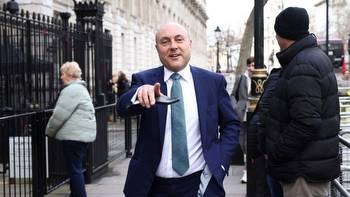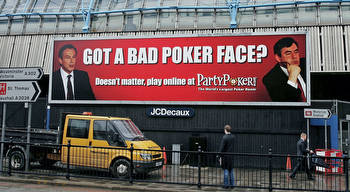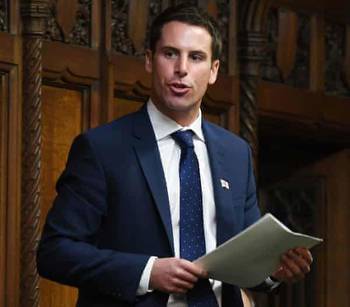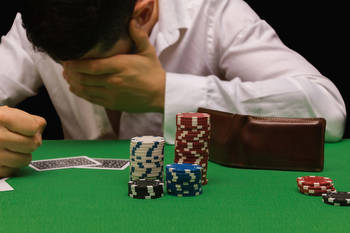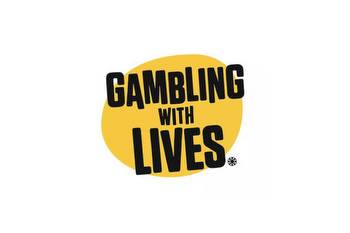Winning Post: Anti gambling lobby makes bold move for Boris full attention

Regulus Partners observes a week of bold anti-gambling lobby plays carried out in Commons, the House of Lords and UK media – undertaken to ensure that PM Boris Johnson maintains his election pledge to drastically reform the UK gambling sector.
The heat on gambling was turned up again this week as the Peers for Gambling Reform and the Gambling-related Harm All-Party Parliamentary Group sent an open letter to the Prime Minister calling on him “to be bold in delivering the gambling reforms that are urgently needed to prevent gambling harm across the country”.
A further 151 assorted Parliamentarians joined the nine in signing an abbreviated version of the same letter to the Daily Telegraph – a show of strength that revealed support from 11% of the combined Houses.
Lest the PM be in any doubt about what “being bold” actually means, the longer of the two letters spelt out what was needed: stake, prize and speed of play limits for online slots; clear affordability checks; a ban on “inducements to gamble” and ‘proper regulation’ of VIP schemes; “much stricter controls on gambling advertising”; the introduction of a ‘smart levy’; the overhaul of the regulatory system and the establishment of a consumer ombudsman; and the classification of ‘loot boxes’ as gambling products.
The list of reforms is interesting for two reasons. First, it appears relatively restrained by comparison with earlier demands. For example, three of the signatories – Iain Duncan Smith, Carolyn Harris and the Bishop of St Albans – have previously called for a total ban on gambling advertising modelled on the Tobacco Advertising and Promotion Act 2002; and a requirement that consumers provide state access to their bank accounts and submit to surveillance as a condition of being permitted to buy so much as a lottery ticket.
It may be remembered that tobacco advertising restrictions originally carved out Formula One due to its commercial importance to the sport, but the deal collapsed under public health pressure. Whether horseracing can secure advertising carve-outs if the government adopts heavy restrictions will be a critical test to overall funding but especially its ability to remain a genuinely mass market product outside a handful of the biggest meetings. Dangerously, given the standard of evidence used in the discourse that has got us to this point, it is quite possible that a critical mass of ‘anti gambling’ MPs and lobbyists have not thought through the damage many of the policies will do to racing. It is worth noting that legislation modelled on the Tobacco Advertising and Promotion Act (as IDS and others have proposed) would in fact apply to racing.
This week’s less strident tone may reflect the moderating influence of more thoughtful Parliamentarians, such as the former minister Tracey Crouch. It may also be related to a second interesting aspect – the near absence of detail in relation to what constitutes being “bold”. Whether the proposals are in fact as reasonable as they seem depends on exactly how they are to be implemented. For example, a ban on “inducements to gamble” could encompass all advertising (the Gambling Act 2005 defines advertising as “anything to encourage one or more persons to take advantage of facilities for gambling”).
The call for “clear assessments…of what is an affordable level for people to gamble” could be a reference to more consistent application of existing regulations but will inevitably be associated with attempts by the Gambling Commission and others to require adults wishing to spend in excess of £100 a month to submit bank statements and tax returns. It might even be a nod towards those who wish to impose a universal spending cap that no one is permitted to exceed.
It is a common feature of the gambling reform debate that solutions are typically presented as self-evident but without consideration of practical implementation and without assessment of impact or unintended consequences. Consequently, it can be almost impossible to work out whether or not a policy makes sense. It is also often the case that demands are made either without demonstration of need or justified by faulty evidence. The letter to the PM manages both tricks – using fabrications to make the case for “bold reform”; while at the same time failing to show the linkages between problems and solutions.
Two of the justifications for bold action in the Telegraph letter were lifted directly from last year’s House of Lords Select Committee report – the claim that 60% of gambling industry profits derive from the “5% who are already problem gamblers or at risk of becoming so”; and that “on average a problem gambler commits suicide every day” (an assertion that suggests a quite remarkable faith in reincarnation).
The Select Committee clerk admitted however, that these figures have no basis in fact and this raises the question of whether the peers who signed the letter were consciously dissembling. The Select Committee also asserted that the Samaritans reporting guidelines for suicide do not apply to the House of Lords. As a result, peers continue to flout them (use of the phrase “commit suicide” is a hangover from the days when the act was unlawful – and this is rightly discouraged).
Examination of the Public Health England £1.2bn cost estimate for gambling harms reveals that it too is largely fictitious. The claim that there are 55,000 children “addicted to gambling” is the nearest we get to factual accuracy – but a DSM-IV-MR-J ‘problem gambling’ classification does not denote addiction and diagnostic precision ought to be important.
The claim that the “greatest risks occur” in the North-East and North-West is odd given that problem gambling rates are pretty unstable by region (the only constant finding from Health Surveys is that the South West has the lowest rate). If any region can lay claim to the highest prevalence of harmful gambling, it is London. Suggestions to the contrary invite speculation that fixation with the North is part of the rather tiresome tug-of-war over ‘Red Wall’ sentiment.
The hard facts about gambling harm are sobering enough and do not require embellishment. There ought to be no need to make things up. In the same way, attempts to marginalise harms are equally misguided and likely to be futile in any event. Propaganda – in whatever cause – makes a poor basis for policy decisions, is likely to lead to unstable outcomes and must inevitably frustrate scientific evaluation. Boris Johnson rarely has any trouble being bold; it is consistency that he struggles with. Attempts by different factions to goad the Government into action through misinformation seem likely to result in wastefulness and muddle.
Featured article edited by SBC from ‘Winning Post’ Sunday 28 November 2021 (click on the below logo to access a full unedited version)













